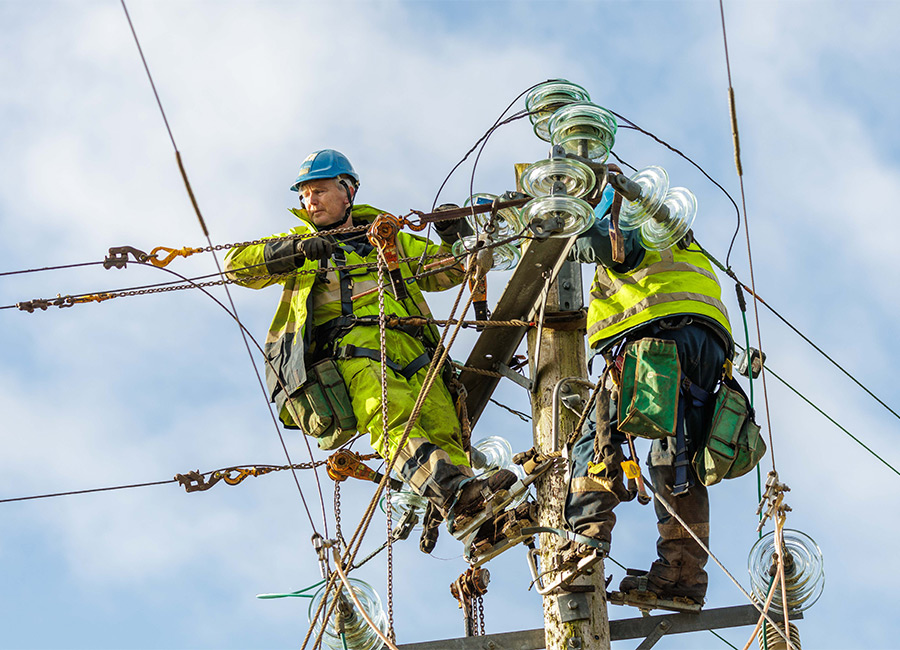ESB had proposed a €189m dividend after making a €706m profit after tax last year, down 19% or €162m from 2023 (€868m).
The State-owned energy group made record capital investment in critical energy infrastructure and joint ventures of €2.2bn in 2024.
Furthermore, ESB claimed to have contributed €3bn to the economy last year in payroll, taxes, dividends and purchases from domestic suppliers.
"Our profit after tax for 2024 at €706m is a reduction of 19% on the previous year. Nevertheless, it represents a solid performance in the context of the change in market circumstances in 2024," said Paul Stapleton, chief financial officer of ESB.
The company blamed lower gross margins in both Ireland and Britain for its reduced profitability in energy generation and trading, although ESB Networks increased its all-island profit and margins in ESB's supply business improved.
"International wholesale energy prices were lower and relatively more stable in 2024 compared to the previous two years, but they remain volatile and at levels that are more than twice that experienced pre-energy crisis," Stapleton continued.
"The 2024 performance is in line with expectations and has enabled us to deliver a record capital investment of €2.2bn in critical energy infrastructure, while retaining the financial strength to invest more over the coming years.
“For every euro of Profit after Tax earned by ESB last year, we invested €3 in capital investment projects.”
On a unit-by-unit basis, pre-tax profitability increased in ESB's customer solutions (+€129m to €93m), Networks (+€10m to €357m), NIE Networks (+€106m to €134m) and other (+€106m to -€58m) businesses, but profits in Generation & Trading declined €426m year-on-year to €343m.
ESB directly incurred capital expenditure of €1.8bn, and paid €400m to advance joint venture infrastructure projects.
The total investment of €2.2bn included €1.4bn in electricity networks in Ireland and Northern Ireland, €500m invested in renewable generation projects, and €300m in security of supply and other investments.
The proposed €189m dividend would bring ESB's total dividends paid to €1.8bn since 2014. The group now has net debt of €6.7bn and total borrowings of €7.5bn.
In terms of sustainability, the carbon intensity of ESB's electricity generation has declined 46% and its overall carbon emissions are 65% lower than 2005 baseline levels.
The group now has 1.8GW of renewables across wind, hydro and solar power and renewable enabling assets such as batteries and pumped storage.
ESB Networks and NIE Networks had connected a total of 8.8 GW of renewables to their transmission and distribution networks by the end of 2024. 326,000 smart meters were also installed in 2024, bringing the total number of customers with a smart meter to over 1.9m in Ireland.
Over 85% of ESB capital expenditure in 2024 was aligned with the EU Taxonomy for sustainable investment.
“The unprecedented extreme weather events experienced in recent months caused significant electricity supply disruption which we acknowledge was very challenging for many of our customers," said Stapleton.

"This has highlighted the need to further invest to enhance the reliability of the network as well as continuing to invest in renewable energy sources. ESB Networks plans to more than double the scale of investment in the network over the next five years and NIE Networks will have a similar increase in Northern Ireland.
"This investment is only possible if ESB maintains profitability and a strong credit rating to support an increase in borrowings.”
(Pic: File)











